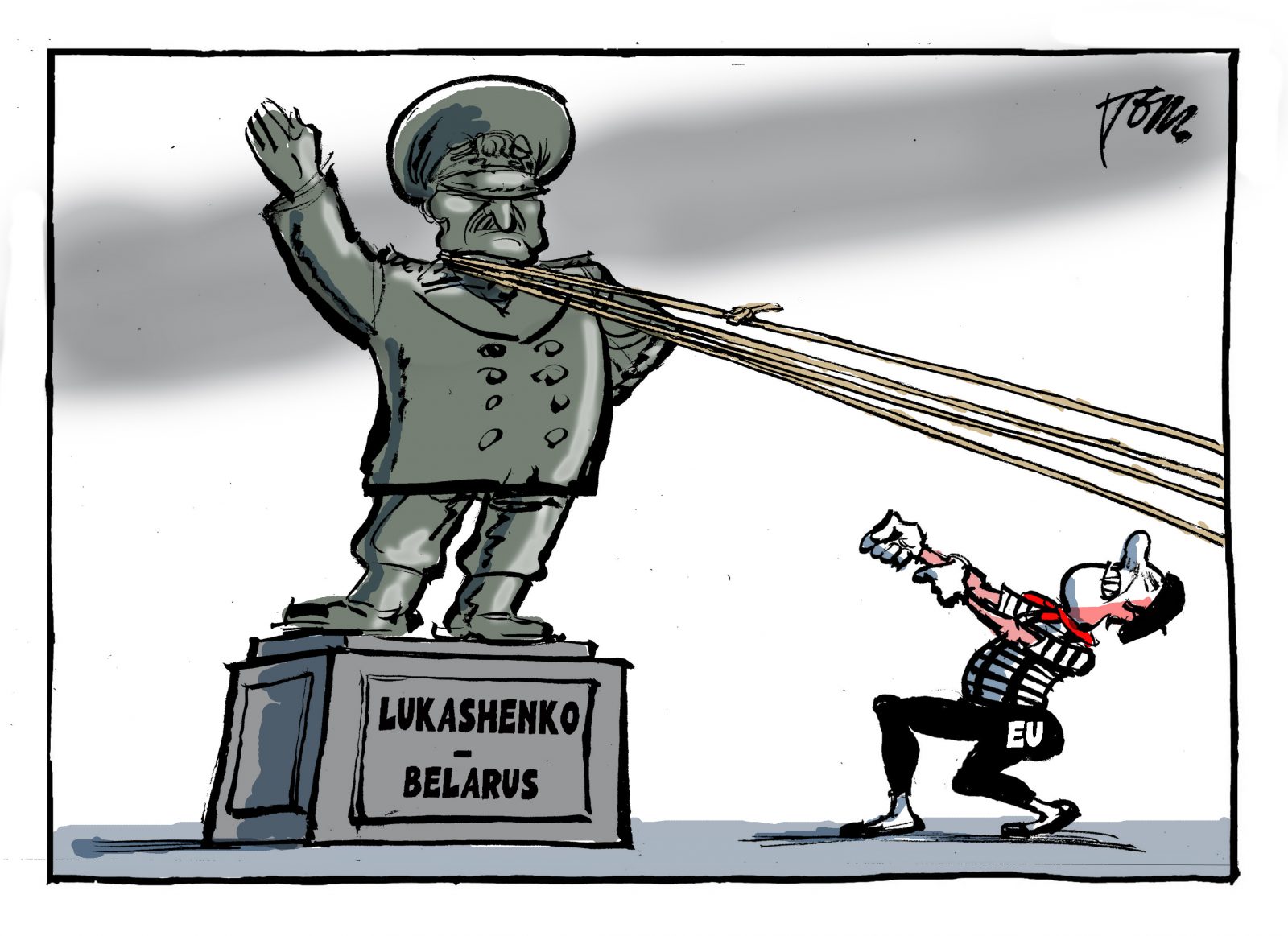Tom Janssen wins the ECA 2021
Dutch cartoonist Tom Janssen is the winner of the second edition of the European Cartoon Award
The European Press Prize and Studio Europa Maastricht, founders of the second edition of the European Cartoon Award, are glad to announce the name of the winner and runners-up of this year’s edition of the ECA. With his work “EU and Belarus” published in the newspaper Trouw, the Dutch cartoonist Tom Janssen won the first prize. The two runners-up are another Dutch cartoonist, Hajo de Reijger, and the Turkish artist Musa Gumus – both published by the international media outlet Cartoon Movement.

See the 16 nominated cartoons
on europeancartoonaward.com
The works of the winner and runners-up were selected from almost 300 submissions, coming from 28 countries, European and beyond, by a jury composed of award-winning cartoonists, previous year’s nominees, activists, and experts.
Janet Anderson, chair of the Panel of judges:
“Editorial Cartoonists have shown us again how they make powerful political commentaries with their drawings. 2020 was the year of the pandemic in Europe, and our shortlist selection and our prize-winner inevitably reflect much of the worldwide economic, social and political debates. But in our other top choices, we wanted as a jury to also reflect on the huge political story taking place in Belarus, and the political reality of how Europe engages with what is just over its borders, and to highlight the importance of the freedom of the media and the violent threats the press faces.”
The jury of the European Cartoon award 2021 was composed of: Anne Derenne (2020 winner), Janet Anderson, Khalid Albahi, Gian-Paolo Accardo, Paulo Jorge Fernandes. And, for the first round of selection, a jury composed of five previous year’s nominees: Mette Dreyer, Claudio Antonio Gomes, Costel Patrascan, Halit Kurtulmuş, and Tomás Serrano.
Sixteen nominated cartoons
After 2 rounds of evaluation, the two juries identified a batch of 16 cartoons that qualified for the final selection. Here is the list of the 14 nominees the cartoons belong to:
Vitor Neves – Portugal
Vasco Gargalo – Portugal
André Carrilho – Portugal
Pedro Silva – Portugal
Niels Bo Bojesen – Denmark
Musa Gumus – Tukey
Marco De Angelis – Italy
Hajo de Reijger – Netherlands
Tom Janssen – Netherlands
Tjeerd Royaards – Netherlands
Saeed Sadeghi – Turkey
DINO – Konstantinos Tsanakas – Greece
Osama Hajjaj – Jordan
Tchavdar Nikolov – Bulgaria
About the European Cartoon Award
The European Cartoon Award was founded in 2019 by European Press Prize and Studio Europa Maastricht to encourage cartoonists in their essential work for freedom of expression. “Cartoonists are an ‘endangered species’: they have to deal with increasing resistance, censorship, and even threats and violence. Their space is shrinking, both in available publications and in the themes they can tackle. That is not only happening far away but also right here in Europe,” says director of the European Press Prize Thomas van Neerbos
Statement
Because of different substantiated complaints we have received from different people, we have decided to remove Daniel Romein from our register, and to revoke his laureate status at the European Press Prize.

